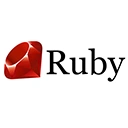Introduction
When it comes to data storage for web applications, traditional relational databases are not the only option. NoSQL databases have gained popularity due to their flexibility and scalability. In this guide, we'll explore the use of Ruby with NoSQL databases and introduce you to the concept of NoSQL databases.
What Are NoSQL Databases?
NoSQL databases are a category of databases that do not rely on the traditional tabular relational model used by SQL databases. Instead, they use various data models, including document-based, key-value, column-family, and graph databases. NoSQL databases are often used for storing unstructured or semi-structured data and are designed to scale horizontally.
Types of NoSQL Databases
There are several types of NoSQL databases, including:
- Document-based: Stores data in documents, such as JSON or BSON. Examples include MongoDB and CouchDB.
- Key-Value: Stores data as key-value pairs. Examples include Redis and Riak.
- Column-family: Stores data in columns instead of rows. Examples include Apache Cassandra and HBase.
- Graph: Designed for graph data and relationships. Examples include Neo4j and OrientDB.
Ruby and NoSQL Databases
Ruby has a variety of libraries and gems that allow you to work with NoSQL databases seamlessly. Let's look at an example using MongoDB, a popular document-based NoSQL database, and the `mongo` gem:
# Install the mongo gem
# gem install mongo
require 'mongo'
# Create a connection to the MongoDB server
client = Mongo::Client.new(['127.0.0.1:27017'], :database => 'mydb')
# Access a collection (analogous to a table in SQL databases)
collection = client[:my_collection]
# Insert a document
document = { name: 'John', age: 30, city: 'New York' }
collection.insert_one(document)
# Query the database
result = collection.find('name' => 'John')
result.each do |doc|
puts doc
end
With Ruby and the `mongo` gem, you can easily connect to a MongoDB database, insert data, and query it.
Conclusion
NoSQL databases provide an excellent alternative to traditional relational databases, offering flexibility, scalability, and performance advantages for various types of applications. Ruby, with its rich ecosystem of gems, makes it easy to work with NoSQL databases. As you delve deeper into NoSQL databases and Ruby, consider exploring the specific NoSQL database that best fits your project's needs.
Happy coding with Ruby and NoSQL databases!

